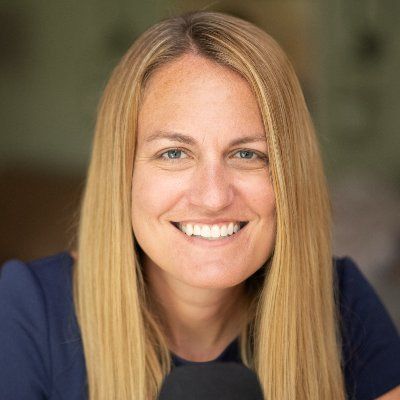
Julie Kratz
Contributor at Forbes
TEDx Speaker | Inclusive Leadership Trainer | Author | Podcast Host | Develops Inclusive Workplace Cultures
Articles
-
1 week ago |
forbes.com | Julie Kratz
Stress levels in the U.S. are at record highs with one in four adults having experienced mental illness in the past year. According to MSNBC, “With election chaos, rising global costs, health concerns, work pressures, and relationship demands, nearly 40% of Americans report experiencing peak stress.” This perpetual uncertainty is not sustainable. Focusing on what we can control in times of peak stress helps us cope.
-
1 week ago |
forbes.com | Julie Kratz
As humans, we are wired for fairness. We need fairness to survive in groups and build trust and reciprocity as a social species. This is why young children understand the importance of fairness, commonly citing “this is not fair” in protest for new rules or unpopular demands.
-
2 weeks ago |
forbes.com | Julie Kratz
Are you burnt-out? You’re not alone. According to Deloitte’s most recent annual Workplace Burnout Survey: 91% say having an unmanageable amount of stress or frustration negatively impacts the quality of their work. 83% say burnout from work can negatively impact their personal relationships. 87% say they have passion for their current job, yet 64% are frequently stressed.
-
2 weeks ago |
forbes.com | Julie Kratz
Think about the last time you traveled to visit a different culture. Perhaps you studied abroad or you were around people from a very different community than yours. Did you feel friction? That likely is due to the double empathy problem. According to the National Autistic Society, "The theory of the double empathy problem suggests that when people with very different experiences of the world interact with one another, they will struggle to empathize with each other.
-
3 weeks ago |
forbes.com | Julie Kratz
In a polarizing world where we often default to binary bias—it’s good or it’s bad, optimism or pessimism—diversity, equity and inclusion (DEI) work has found itself once again in the middle of these paradoxical crosshairs. As someone who's done inclusion work for nearly a decade, I believe our work falls somewhere between doomsday (the worst-case scenario), and Pollyanna (the tendency to only focus on the positive aspects). The truth is our work is in trouble. The executive orders are real.
Try JournoFinder For Free
Search and contact over 1M+ journalist profiles, browse 100M+ articles, and unlock powerful PR tools.
Start Your 7-Day Free Trial →X (formerly Twitter)
- Followers
- 1K
- Tweets
- 3K
- DMs Open
- No

RT @GoodAmericanMan: Project 2025 is when we make @nextpivotpoint work in the mines ⛏️ https://t.co/MGn90IrDvR

RT @fortefoundation: We’re thrilled to announce that Amy Orlov, Forté’s Director of Programs, will be representing us as a thought leader a…

This is just the beginning of the labor shortage. Leaders will sustain a competitive advantage on talent by: 1. Facilitating an inclusive workplace culture where everyone feels seen, heard and belongs (younger generations cite inclusion as a non-negotiab…https://t.co/GZ7fA3WZqt